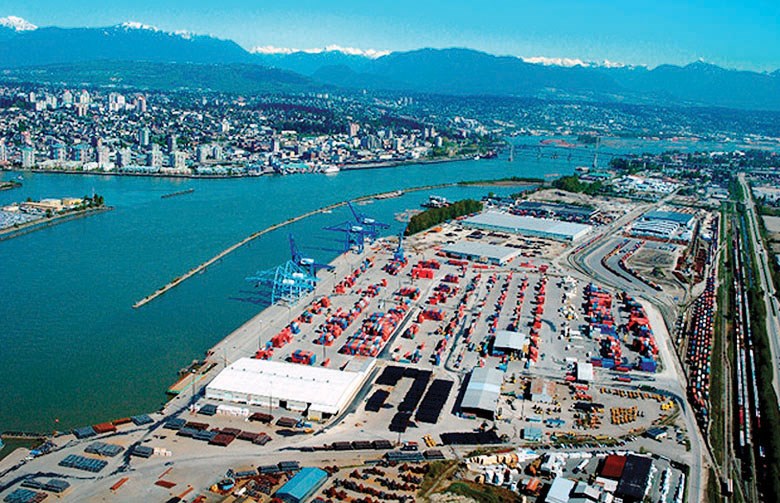Fraser Surrey Docks' contentious coal handling terminal proposal should be subject to regional air quality regulations, according to an independent committee established by the Corporation of Delta.
Delta council recently discussed some of the recommendations of the interagency review committee, which didn't get participation from Port Metro Vancouver. It met earlier this month to discuss concerns, including potential health impacts, regarding the plan by Fraser Surrey Docks to develop part of its 63-hectare site on the south side of the Fraser River to transfer thermal coal brought in by rail from Wyoming.
That coal would be loaded directly onto barges and towed by tug to Texada Island, where it would be transferred into storage to wait for ocean-going freighters.
Fraser Surrey Docks commissioned its own environmental study that concluded its proposal is "not likely to cause significant adverse affects" on the environment or human health.
However, the committee, which had representatives from Delta, Metro Vancouver, White Rock, MP Kerry-Lynne Findlay's office and the B.C. Ministry of Environment, found that while other coal handling facilities in the region are subject to regulation though Metro Vancouver's air quality permits, there's uncertainty whether a permit is required for the controversial proposal now being considered by Port Metro Vancouver.
The committee agreed that a Metro Vancouver air quality permit should be required and that a human health impact assessment be considered as part of the permit review process.
Delta CAO George Harvie told councillors there are concerns the port authority may consider the thermal coal port plan completely within its own jurisdiction and not require it to go through a regional air emissions process.
"Although other coal facilities in Metro Vancouver are under Metro Vancouver's air quality permits, there is really a question whether Fraser Surrey Docks doesn't have to, according to Port Metro Vancouver," Harvie said. "It was important for the committee and for local governments that Fraser Surrey Docks application needs to be treated as any other application in Metro Vancouver, and go through the Metro Vancouver permitting process."
A report to council notes the committee "wished to have public concerns related to Fraser Surrey Docks application addressed through an open and transparent process accompanied by the provisions of accurate, unbiased information." In an interview last year, James Crandles, the port authority's director of planning and development, said because coal would be a new product handled by the terminal, the application must go through PMV's project review process.
Crandles noted the application doesn't need to go to senior government for approval because Port Metro Vancouver manages the land at Fraser Surrey Docks through the Canada Marine Act, making it totally within the port's land use control.
Further complicating matters is the B.C. government recently, and quietly, approved an amended permit to allow Lafarge to store 800,000 tonnes of coal on Texeda Island, doubling the previous amount. The expansion would enable Lafarge to handle the thermal coal from the proposed Fraser Surrey Docks facility.
Noting Delta was unaware of the approval and not consulted, Coun. Jeannie Kanakos said it appears the province has done an end-run around local governments, the public and First Nations.



